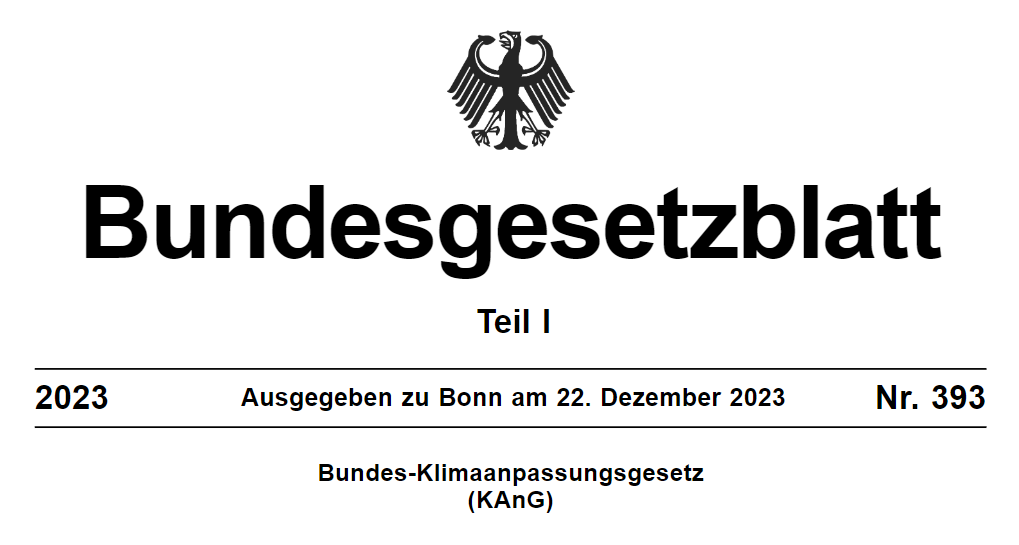Germany is slowly Adapting to Climate Change
Download the PDF for a better reading experience!
Germany – unprepared for Climate Change
Knock Knock… Who is zis? It’s Climate Change and you, Germany, are not prepared.
Time is not only running out, but we are also already in quite some delay when it comes to adapting to global warming. Climate change is undeniably happening. Fastly. Whether it’s floods, droughts, exploding asphalt, a rising number of heat-related deaths, critical infrastructure, or restrictions on watering your garden and rationing drinking water for agriculture and businesses — the list goes on. Things are getting serious not only in Germany.
Europe, and Germany in its centre, is strongly affected by Climate Change. Europe is the world’s fastest-warming continent, (learn more) warming up at twice the global rate. As of today, Germany’s average annual temperature has already increased by 1.6°C—higher than anywhere else globally. We are already experiencing the impact: the number of hot days with temperatures exceeding 30°C has nearly tripled, and winter precipitation has risen by 27 per cent. By 2050 the average air temperature in Germany could rise by 2.3 to 3 degrees compared to the early industrial era if global GHG emissions are not drastically reduced. (learn more) Based on what we have experienced in the last years, Germany should better prepare itself for this scenario.
Referring to the book Germany 2050 (Deutschland 2050) in which the authors convincingly present the future scenario for Germany in diverse global warming scenarios, we urgently need to prepare for what is already happening and what is coming over the next decades.
Shockingly, preparations so far have been highly insufficient. The communes have often not prepared climate adaptation plans, despite the warning signs. Germany’s federal system proves slower in this case for taking decisive climate action, a gap that shall now be addressed with the Climate Adaptation Act (Bundesklimaanpassungsgesetz).

Germany’s Climate Adaptation Act
Today, July 1rst 2024, the Federal Climate Adaptation Act came into effect, holding not only the federal government but also states and municipalities accountable for preparing to the effects of Climate Change.
The purpose of the law is to establish widespread precautionary measures in Germany to address the effects of global climate warming. It acknowledges that the impact and circumstances vary greatly from one region to another, and thus focuses on enhancing locally tailored climate adaptation efforts. States are tasked with developing adaptation plans with specific measures for municipalities and districts, based on risk analyses that account for local conditions. Under the Climate Adaptation Act, each state will also present and implement its own climate adaptation strategies. (learn more)
By September 30, 2024, all 11,000 municipalities in Germany must report their existing climate adaptation strategies. States must develop and implement their climate adaptation strategies by January 31, 2027, and clarify responsibilities for climate adaptation concepts across their 290 districts and 11,000 municipalities.
A very challenging demand due to the fact that most communities still have not developed convincing plans, with only a few having considered heat action plans. Federal, state, and local authorities need to systematically address these issues now.
Can it bring the change needed?
It certainly is a first step, and the near future will show, if the local, state, and federal governments can deliver the necessary to effectively adapt to a warming climate in Germany.
As every law, also the Climate Adaptation Act meets critics from experts. Some consider the law as not far reaching enough and criticise the lack of binding force for comprehensive adaptation. One of the major issues will likely derive from the financial perspective. If the current investment volume remain unchanged, a significant gap in the financing of adaptation measures will most certainly emerge. Climate adaptation is becoming a permanent municipal task, and the federal and state governments estimate the financial need for climate adaptation measures by 2030 to be 55 billion euros, with a requirement of 16,200 personnel for implementation. “With the existing funding programs, it is impossible to implement these necessary measures across the board” Helmut Dedy, the Chief Executive of the Association of German Cities. (learn more)
Consequently, new financial incentives are needed, not only for states and municipalities but also for private entities to foster adaptation to Climate Change. The Climate Adaptation Act can only be seen as the first step towards an effective climate adaptation strategy.
Don’t wait, take action
Germany needs to speed up, quickly solve the open problems, and prepare to make available significant fundings to face Climate Change. Any delay will become only more expensive in the future.
Saying this, each and everyone of us, in or outside Germany can play his/her part in this. On a personal level plan ahead and make your place climate proof (as much as possible). This could mean investing in energy or water efficient technologies, insulation, or planting a tree in your garden that will provide shade to your house in some years. These actions will pay off in the long run.
As importantly, raise your voice for more climate action in your community. Send proposals to your local government on how to take climate action. Engage yourself in your community and find like-minded people to push for a faster adaptation to global warming.
Climate Change is already here, and it will only get worse till 2050. So, prepare yourself and your surroundings and engage for greater climate action in your community. It certainly will pay off to prepare now for what is to come.


